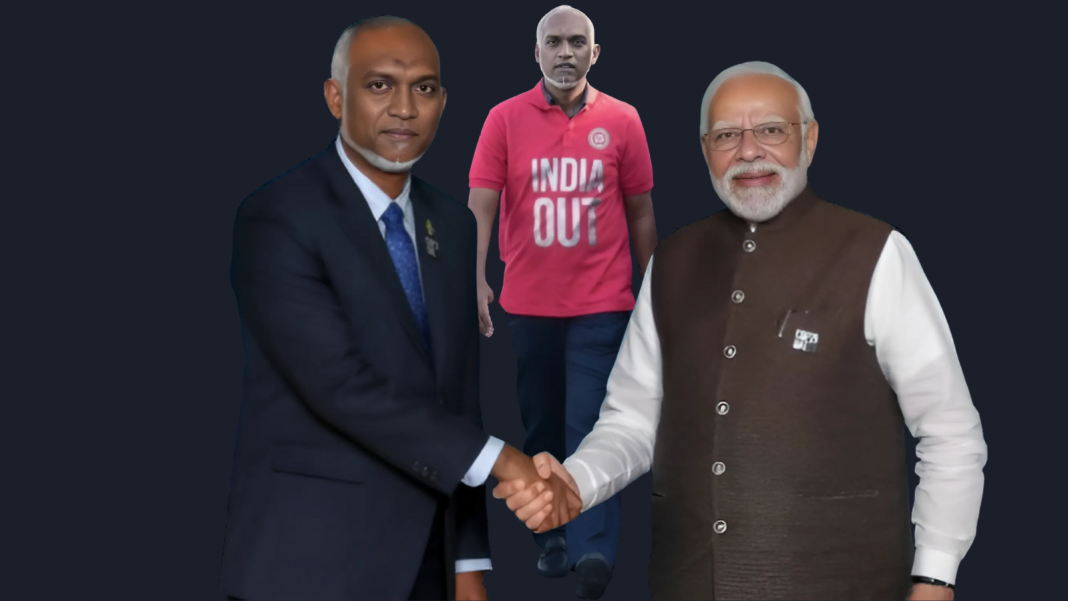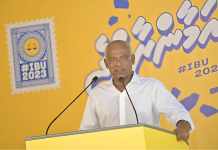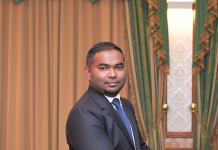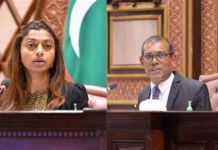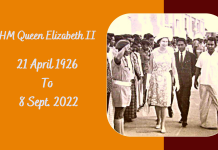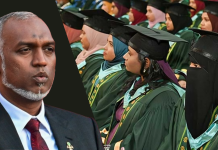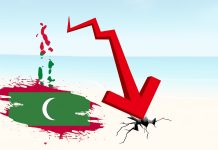In a stunning revelation, former Sri Lankan President Ranil Wickremesinghe has exposed the true face of President Dr. Mohamed Muizzu, claiming that his anti-India pledges were nothing more than a political ploy to win last year’s Maldivian presidential election. In an interview with India’s Firstpost on September 19, Wickremesinghe revealed that Muizzu privately confessed to making promises during the campaign that were never intended to be fulfilled. “He is certainly more friendly with India now,” Ranil remarked, highlighting the stark shift in Muizzu’s approach since assuming office.
These admissions are alarming. For a year, Muizzu and his People’s National Congress (PNC) coalition fueled the flames of nationalism and fear, rallying supporters under the banner of the ‘India Out’ campaign. They accused the former Maldivian Democratic Party (MDP) government of compromising the nation’s sovereignty by allowing Indian soldiers on Maldivian soil and signing secretive military agreements. Muizzu’s campaign promises included the removal of Indian soldiers and the return of military helicopters and aircraft stationed in the Maldives under these agreements. His rhetoric painted India as a bully meddling in Maldivian affairs—a message that resonated with a public increasingly distrustful of foreign influence.
But the Muizzu of today is a far cry from the anti-India crusader he portrayed himself to be. As Wickremesinghe disclosed, Muizzu now seeks to mend fences with India, a country he once vilified. The chemistry between Muizzu and Indian Prime Minister Narendra Modi, once marked by hostility, has significantly improved, according to Ranil, who was present when the two leaders met after Muizzu’s election win.
So, what happened to the promises? Where are the results of Muizzu’s defiant stance against India?
The Indian helicopters and Dornier aircraft, far from being sent back, have been put back into operation. While Muizzu’s government claims to have removed 77 Indian soldiers, it has quietly replaced them with personnel from Hindustan Aeronautics, a company under the Indian Defence Ministry. The agreements Muizzu pledged to cancel have conveniently stalled in Parliament. The issue has been “parked” on orders from the president himself.
This shift in tone and action reeks of hypocrisy. Muizzu spent months stoking anti-India sentiment, only to cozy up to the very country he accused of undermining Maldivian sovereignty. His government, after briefly antagonizing India at the start of his administration, is now seeking financial support from the same nation it demonized.
For Maldivians who believed in Muizzu’s promises, this is a betrayal. It’s clear now that his campaign rhetoric was nothing more than a cynical strategy to win votes. The President’s actions demonstrate that sovereignty and nationalism are merely convenient tools for political gain, to be discarded once power is secured.
Muizzu’s duplicity has tarnished his credibility. His failure to deliver on key pledges, combined with his reversal of stance on India, leaves Maldivians questioning the true direction of his administration. Will this be a government that stands firm on its promises, or one that bends to foreign powers in exchange for financial aid?

